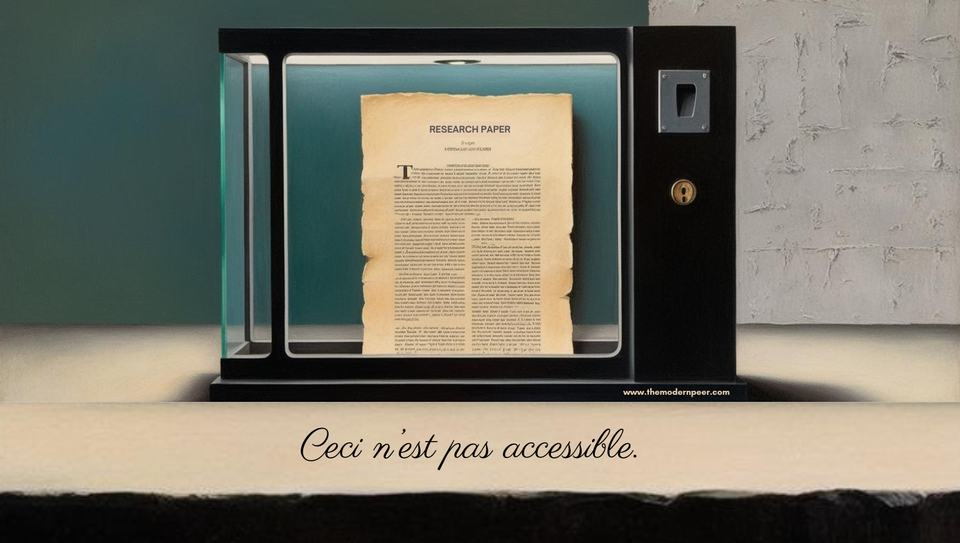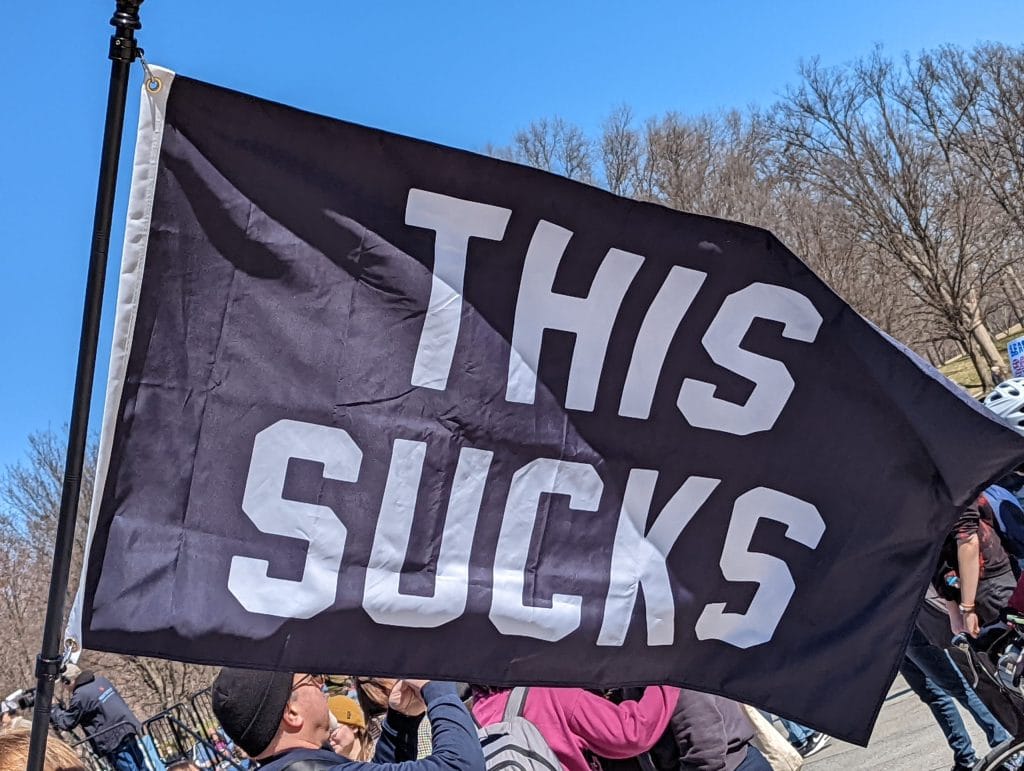Stand up for Science...and also for the way it's shared

Last Friday, thousands of scientists protested against US government cuts on research funding with the Stand up for Science movement.
There were more than 30 demonstrations all over the US, and a handful in other countries (several of them taking place in France).

Photos by Kimberly Cartier AGU (left) and Patty Hankins (right)(with permission).
So, what does it mean to “Stand up for Science”?
In its core, it’s about protecting scientific integrity and reminding that research should serve the public good, not political (or corporate) agendas.
Yet, the only widely accepted research output, “the research article” is sturdily entangled with corporations. One of the biggest threats to science comes from the academic publishing system, where the profits often take precedence over knowledge-sharing. If public funds are used to fuel research, it’s only fair that the public has access to the end result. We are not talking about magazines or novels.
(If you are wondering how this system was built in the first place, there is a great article on it in The Guardian, from a few years ago.)
The business of science
As a student, I never really questioned why I had to enter a username and a password to read papers (to be fair, I was stressing over my little cell cultures).
No one talked about why these publications were behind such a lock.
That was the way it worked.
Then, suddenly one day, SciHub appeared. This website instantly gave access to millions of papers for free. I think this was the moment many students started wondering why these papers were behind paywalls in the first place. But change is slow and nothing tangible seems to be on the horizon, other than a few scientists slowly waking up and realizing there is something seriously backwards here.
“I only publish with small society publishers!” That’s amazing and I love you for it.
It doesn’t change the fact that the big publishers oligopoly is dominating the academic publishing industry. These paywalls and high fees are even limiting access for scientists whose own work is behind those paywalls.
This also opens the door to restricting research, cherry-picking and censorship, driven by political or corporate pressure by questionable actors…
It has happened already. And currently happening again.
So, corporations looking for profit do not seem to mix very well with entities aimed at producing and propagating human knowledge.
Open Science vs. (or rather ft.) Publishing Giants
For the last two decades (at least), scientists have been advocating for open science. Initiatives like Plan S by cOAlition S (you guessed it, the OA is for “Open Access”) are gently forcing researchers to make their findings open to the general public.
This sounds great in theory, but some publishers have found a way to exploit this as well (these people are smart). You now have to pay more if you want your article to be open access. Or, if you’re going for predatory journals that are shamelessly exploiting open access, you can just pay-to-play. Don’t do this. Please.
On the other hand, organizations like the Gates Foundation that are now forbidding the use of their research funds to pay APCs - though I know they mean well - are putting the scientists in a very difficult position. Obviously, the money should not be used for APCs and contribute to profits of corporations. It should be used for research. But is the overall system ready for this?
I don’t think so. There is a huge block that we need to overcome first.
Scientists are pressured to publish in high-impact, expensive journals to secure funding and tenure.
This is the key issue that is reinforcing the broken system.
So how do we Stand Up for all this?!
Well, I would not be here if I had an answer.
One thing to keep in mind though, is that we - the researchers - are the ones who have decision power. We are the ones doing the research, writing the papers, reviewing the papers, reading the papers and further building on them. We are also the ones "selecting" and recruiting students, postdocs, and faculty members. So why don’t we base our evaluations on the science and not on faulty metrics?
Standing up for Science is crucial. I would argue that this is more than a "US problem" and worldwide solidarity is needed in these times. The fight to defend science requires a truly international response. The events such as the ones we witnessed last Friday are powerful and they also reinforce the feeling of community. We all agree that there is a problem.
At the same time, these early gatherings should not be the culmination of the movement, but merely the first steps to real change.
Science belongs to all of us.


Comments ()